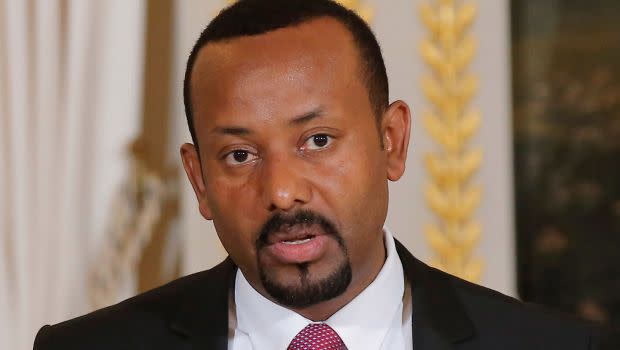Ethiopia has postponed its national elections over coronavirus fears

The global coronavirus outbreak has forced Ethiopia to postpone its much-anticipated national election that was scheduled to be held on Aug. 29. It’s seen as a major setback for the country’s democratic reforms after it allocated over $100 million and received support from international donors.
“With the existing condition in the country, the Board said it had no choice but to suspend its current schedule and forward its resolution to the parliament,” the statement from the National Electoral Board of Ethiopia reads.
Ethiopia, whose Addis Ababa Bole International airport has become Africa’s leading international transit hub, has so far identified 29 Covid-19 cases. But the government’s decision has received mixed reactions from different strands of the opposition movement.
“It was expected and it is a decision that was justified considering the spread of Covid-19 and this was also our view to postpone”, says Natnael Feleke, the spokesperson of Ethiopia Citizens for Social Justice, one of Ethiopia’s leading opposition party.

Opposition supporters of opposition leader Jawar Mohammed in Addis Ababa
“The Board was already behind the schedule by weeks before the coronavirus outbreak became an issue. There was no way they could have held the election as scheduled. The pandemic just gave them justifiable excuses,” says Jawar Mohammed, the political firebrand turned candidate with the Oromo Federalist Congress.
The upcoming election held much hope under prime minister Abiy Ahmed as he long promised Ethiopia’s first historic free and fair election. It was to have been a chance to reduce the nation’s mounting political tension that has produced conflicts and misery to millions of people.
The last election in 2015 produced an overwhelming result that produced every single parliamentary seat in favor of the previous government. One of Ethiopia’s autonomous regions, Tigray, had warned that postponing it will pose a danger to the federation, which is now consists of nine autonomous states and two city administrations.
In order to combat the virus, the Ethiopian government has been taking measures to control the spread including banning mass gatherings, closing schools, while autonomous regional states have suspended intra and inter regional transportation services and put a ban on movements of people.
“Such actions have delayed pre-election tasks, including the training over 150,000 election attendants, that were supposed to be finalized by now,” said Electoral Board, which had a series of discussion with political parties and hired independent consultants to assess the impacts of the virus on the upcoming election.
Ethiopia’s electoral board says it was not also able to procure printed items necessary to conduct polls, though this was expected to have been finalized two weeks ago.
The board further stated how it will reassess the situation in the country and resume pre-election processes once the pandemic put under control.
Nonetheless, analysts fear the postponement of the election at this moment could exacerbate the tense political situation in Ethiopia, which has experienced ethnic conflicts because of political rivalries between oppositions and the ruling government.
“Coronavius is just the intervening factor. The ruling party wanted it to postpone elections even before the pandemic,” says Mekonnen Fisseha, assistant professor of law at Mekelle University.
Ethiopia’s constitution demands an election should be held every five years. “A failure to do so is considered as an unconstitutional act. The parliament cannot extend its own terms,” Fisseha added.
With waning political support, under prime minister Abiy, Ethiopia has allowed political groups, previously labelled as terrorist group, to participate in the political arena. He has freed political prisoners and ended decades of stalemate with Eritrea, an achievement which earned him the Nobel Peace Prize last year.
However, he also stands accused of silencing dissents and arresting political groups and suspending internet access in the Oromia Region where his political support is low.
“The new schedule and other issues need to be thoroughly deliberated among stakeholders. There has to be sufficient consultations between the ruling party and the opposition and decisions has to be made based on consensus,” Jewar warned.
Sign up to the Quartz Africa Weekly Brief here for news and analysis on African business, tech and innovation in your inbox
Sign up for the Quartz Daily Brief, our free daily newsletter with the world’s most important and interesting news.
More stories from Quartz:
US student loan payments are suspended for six months, with many exceptions
How the Covid-19 pandemic caused a global Nintendo Switch shortage

